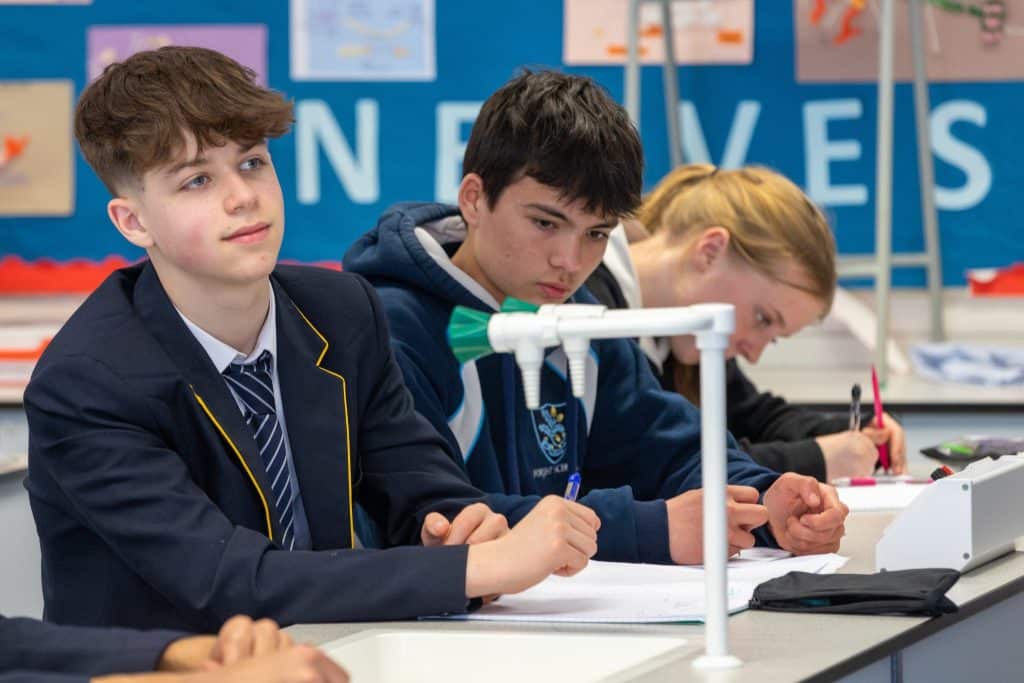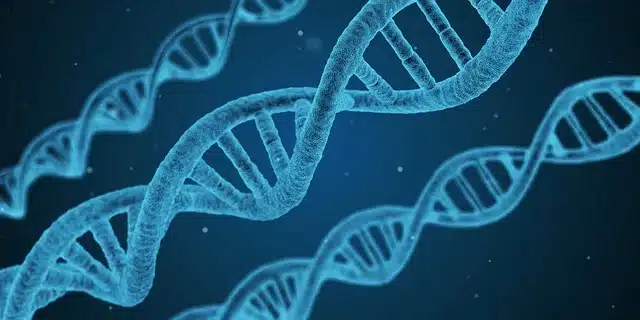Biology at Forest School
Head of Department: Ms Chandler LKC@forest.org.uk
Biology is the study of life, and as such the Biology courses at Forest cover a whole range of topics that are of vital importance and interest to everyone. You will cover everything from studying the building blocks of life, to the way in which humans change the environment of the planet we live on. Other topics along the way include those ranging from gene technologies to human health, as well as linking many topics together. Studying IGCSE sets the foundations for many similar topics to be revisited at A Level in much more complexity and detail.
Our rich curriculum includes:
- Access to some of the best equipment found across schools in the UK
- Dissection society and the UK Biology Challenge
- ‘Biology in Action’ lectures
- The Biology Olympiads
- Practical opportunities both within and beyond the specification
- Academic stretch sessions for sixth form students applying for scientifically rigorous university courses
GCSE and A-level Overview
The Edexcel IGCSE or IGCSE Double Award Science in Biology qualification enables students to:
- Students will gain surface and some deeper understanding of cellular processes as well as environmental interactions, becoming more capable of applying familiar content to new scenarios.
- Students will be able to plan experiments, analyse problems, interpret the impact of changes to organisms and to ecosystems, and apply biological knowledge to unseen investigations.
- They will learn how to apply mathematical skills to ‘real world’ contexts in order to investigate relationships.
- Although there is no formal practical assessment at GCSE; students will carry out experimental work on a number of ‘core practicals’ to develop their experimental knowledge and practical skills.
The OCR A Level in Biology qualification enables students to:
- Students will learn about complex biochemical pathways, developing their knowledge and understanding in order to apply knowledge to new contexts.
- Students will be able to justify experimental methods, suggesting modifications to improve validity.
- Students will apply mathematical skills from GCSE and beyond to draw conclusions and analyse statistical significance of experimental data.
- Practical competency will be assessed in the Practical Endorsement; a separate certificate from the A Level itself.
Assessment at GCSE and A-level
GCSE:
- IGCSE Biology = two written examinations (Paper 1 and 2) – 120-minute (110 marks) exam and one 75-minute (70 marks) exam. Students will gain one GCSE in Biology.
- IGCSE Double Award Science = three written examinations (Biology, Chemistry and Physics) – 120-minute (110 marks – 33.33% per exam). Students will gain two GCSEs in Science.
A Level:
- Paper 1 – Biological processes: 100 marks, 2 hour 15 minutes, written paper (37% of the total grade).
- Paper 2 – Biological diversity: 100 marks, 2 hour 15 minutes, written paper (37% of the total grade).
- Paper 3 – Unified biology: 70 marks, 1 hour 30 minutes, written paper (26% of the total grade).
- Students will also be assessed on their practical competency in the Practical Endorsement in Biology, which is a separate certificate from the A Level grade.
How can Biology change the world?
Einstein, most famous for his work into theoretical physics, once said:
“Look deep into nature, and then you will understand everything better.”
Often people forget how intertwined all three sciences are, and though the underpinning concepts of the Earth and indeed the Universe rely upon the fundamentals of Chemistry and Physics; these are made sense of when studying life itself…. Biology.



